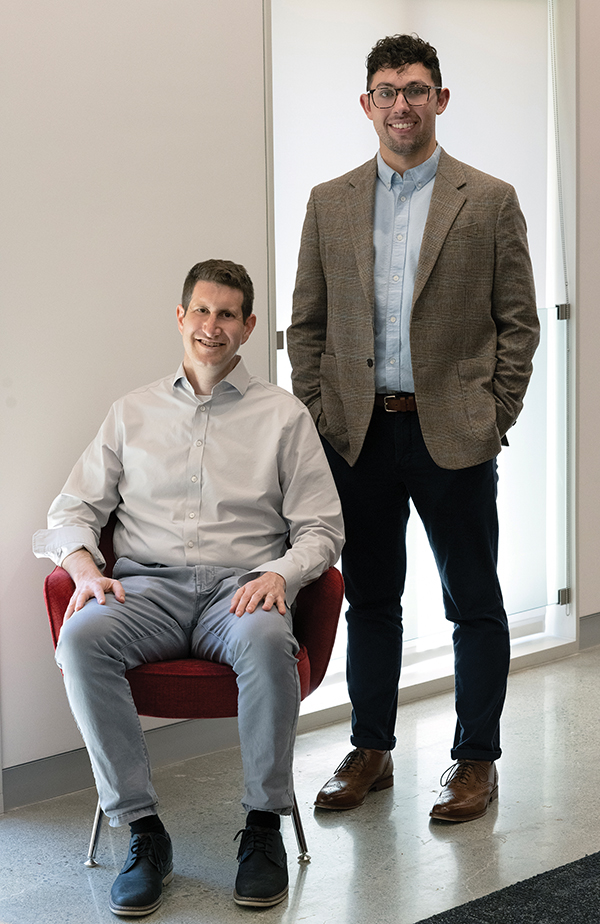We, the (Native) People?
A New Vision of Native Peoples’ Contributions to Constitutional Law

and Tanner Allread,
JD ’22/PhD ’25
Writing in the name of the “people of the United States,” white men drafted the U.S. Constitution in 1787. The following year, white men, chosen by an almost exclusively white, male, property-holding electorate, voted to ratify the Constitution.
These historical facts have important implications for constitutional law. They have led many commentators to question or reject the authority of the Constitution because it rests on such an undemocratic conception of the people. They also mean that present efforts to discern the Constitution’s historical meaning have focused almost exclusively on the views of the document’s drafters and elite interpreters.
Yet the actual “people of the United States” were far less homogenous than the circumscribed group who claimed to represent them. Like the nation today, the United States in 1787 was strikingly diverse, polyglot, and pluralistic.
At the core of the new constitution, then, was a contradiction: a narrow political elite attempting to govern, in the name of the people and popular sovereignty, a much more diverse nation. That elite sought to resolve this hypocrisy through exclusion.
Recent literature captures how thoroughly such exclusionary efforts succeeded. Racialized and gendered exclusion entrenched itself throughout much of antebellum constitutional law, which vindicated chattel slavery, Native dispossession, and women’s supposed subservience. The protests of those deemed political outsiders could be, and were, brutally suppressed through state-sanctioned and -sponsored violence.
But these exclusionary efforts also failed. The United States never was, nor could be, a solely white or male nation. Despite efforts to suppress their voices, those excluded from whiteness and maleness nonetheless engaged with the law, including constitutional law. Historians have recently and effectively reconstructed the legal consciousness of many marginalized groups and their impact on Anglo-American law, including constitutional law.
Yet little of this work has focused on the so-called Founding, the period surrounding the drafting, ratification, and early interpretation of the Constitution. This omission is surprising—partly because this era has become ever more legally important in constitutional interpretation with originalism’s ascendance and partly because constitutional history itself has already shifted to encompass popular constitutionalism. Nonetheless, though we know quite a bit about how marginalized groups were talked about in the period’s constitutional discourse, we know little about what they said; they are presented as objects, not creators, of constitutional ideas. This absence has come to be interpreted as evidence of silence rather than, more accurately, of silencing.
Here we seek to counter this absence by recovering just one of many such suppressed constitutional discourses: the debates and engagement by some Native peoples over the U.S. Constitution during the Founding. Its goal is less to offer a definitive account than to provide proof of concept: to show that we can, in fact, incorporate these voices into our constitutional histories. We should not, in other words, use past exclusion to justify continued exclusion from constitutional history today.
What is the purpose of writing such inclusive constitutional histories? In one sense, incorporating Native voices into constitutional history should be—and is—unsettling. We do not seek to redeem or defend originalism or offer a Panglossian celebration of the Founding by providing a more democratic veneer against critiques of its exclusionary history. The constitutional history of Native peoples is not a multicultural pageant of progress by which even marginalized communities came to claim the Constitution. On the contrary, most Native peoples decided to reject the Constitution and the political system it offered them—and yet they were nonetheless forcibly and unwillingly included within the nation. Recovering their forceful and repeated refusals of the United States vividly and concretely undercuts our happy Founding story that our government rests on the “consent of the governed.”
Yet we also suggest that inclusive constitutional history helps move the conversation beyond arguments over “taint” and “original sin” surrounding the U.S. Constitution’s entanglements with colonialism. The value of more inclusive constitutional history is not to relitigate the past but to help build more inclusive law now. In particular, our recovery of the importance of Indigenous law and constitutional debates during the Founding shows us how the contributions of Native peoples should be recognized as “our law.” The eighteenth-century laws and norms that bound both Anglo-Americans and Native peoples in their relations—which we term the diplomatic constitution—were an essential component of the law of the past, providing a “backdrop” to our constitutional order akin to the common law. And both the diplomatic constitution and Native interpretations of the Constitution alter our narrative of whom the Constitution belongs to. Although this reconstruction cannot remedy the violence and harm of Native peoples’ forcible inclusion into the United States, it nonetheless affirms the role that Native peoples played as co-creators of American constitutional law. In this sense, too, this constitutional history is part of “our law,” the shared constitutional narrative that all Americans identify with. SL
This is an excerpt from the Columbia Law Journal article by Gregory Ablavsky and W. Tanner Allread, “We the (Native) People?: How Indigenous Peoples Debated the U.S. Constitution,” 123 Colum. L. Rev. 243 (2023).
Gregory Ablavsky is the Marion Rice Kirkwood Professor of Law and a professor, by courtesy, of history.
Tanner Allread, JD ’22/PhD ’25, is a Stanford University PhD candidate in history. His research focuses on 19th-century Native American history and the history of Federal Indian Law. He is a citizen of the Choctaw Nation of Oklahoma.
